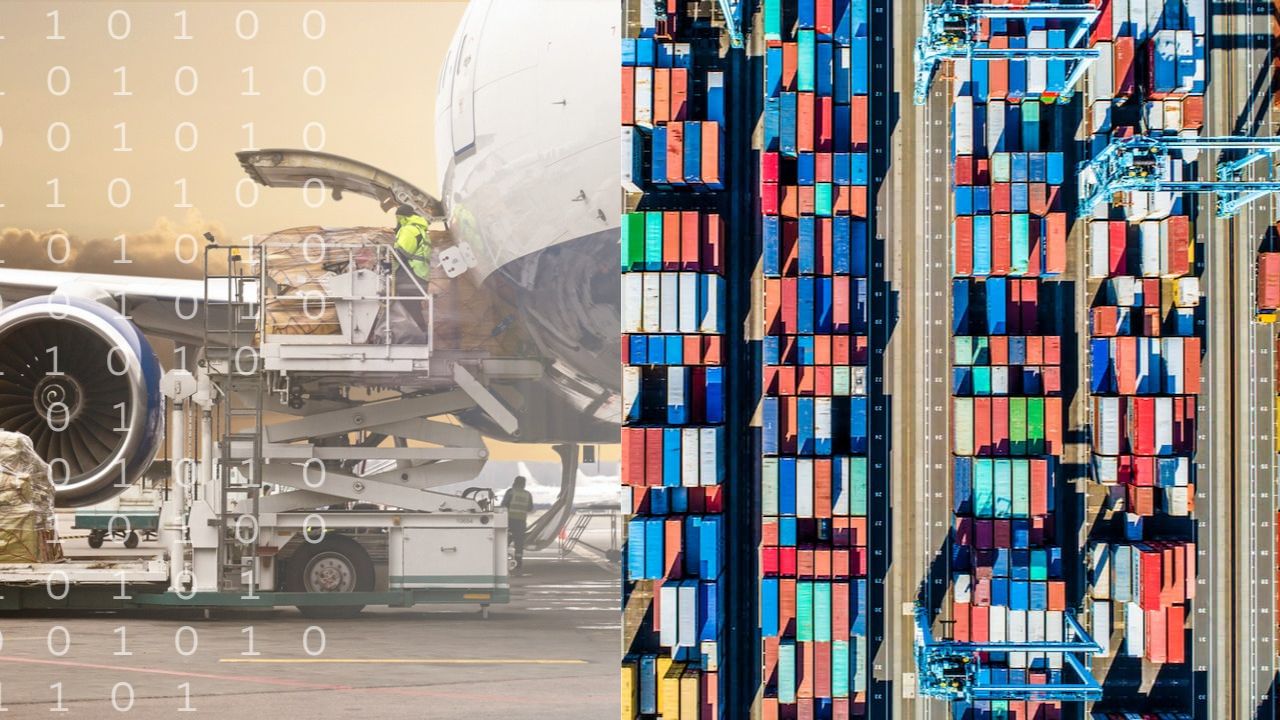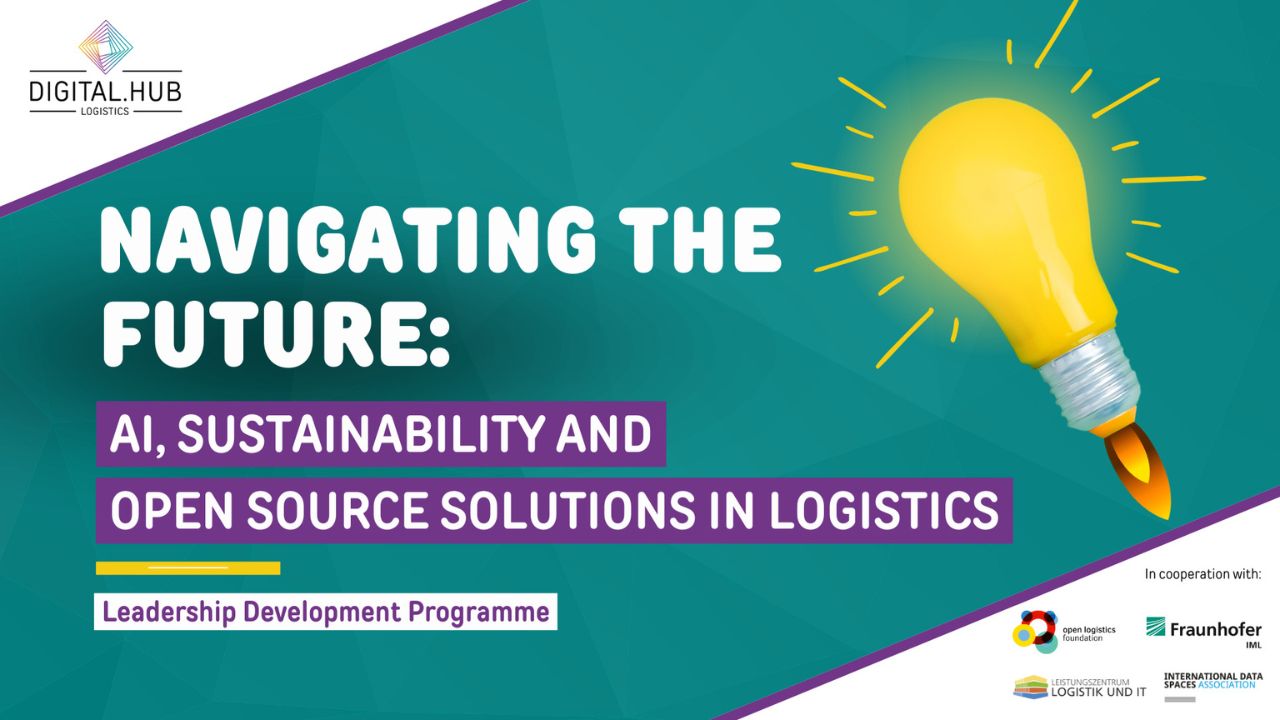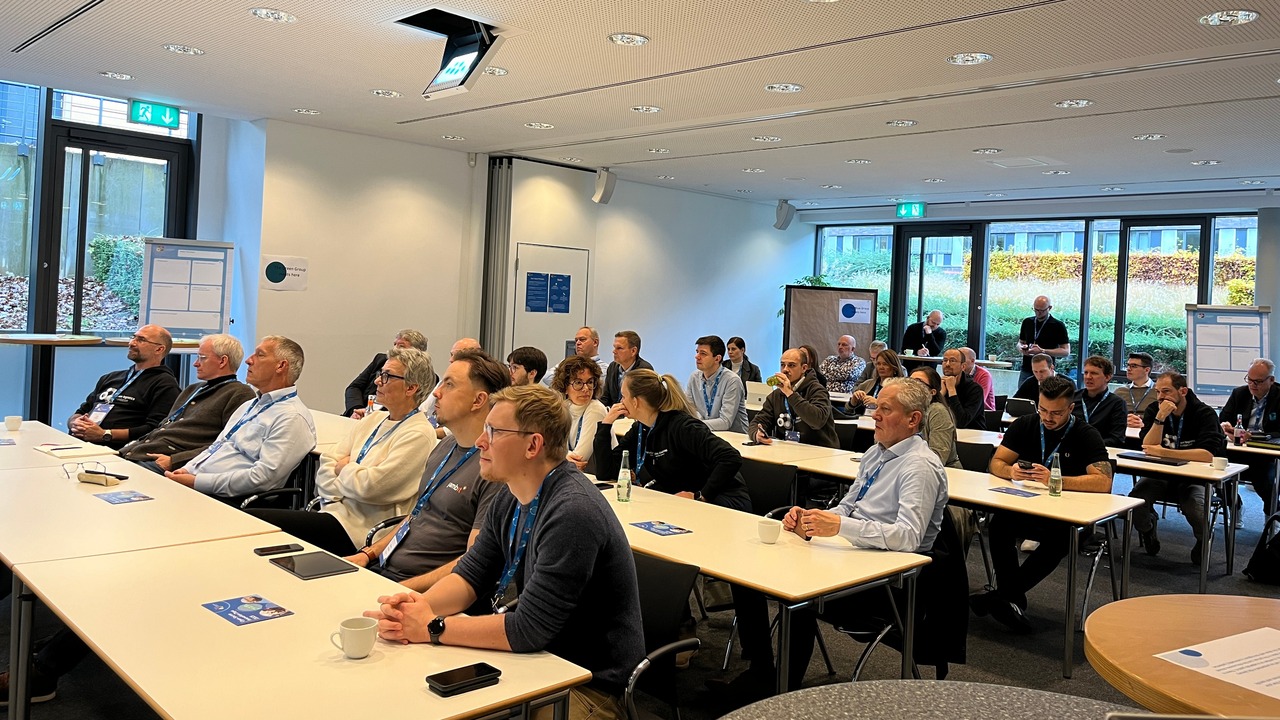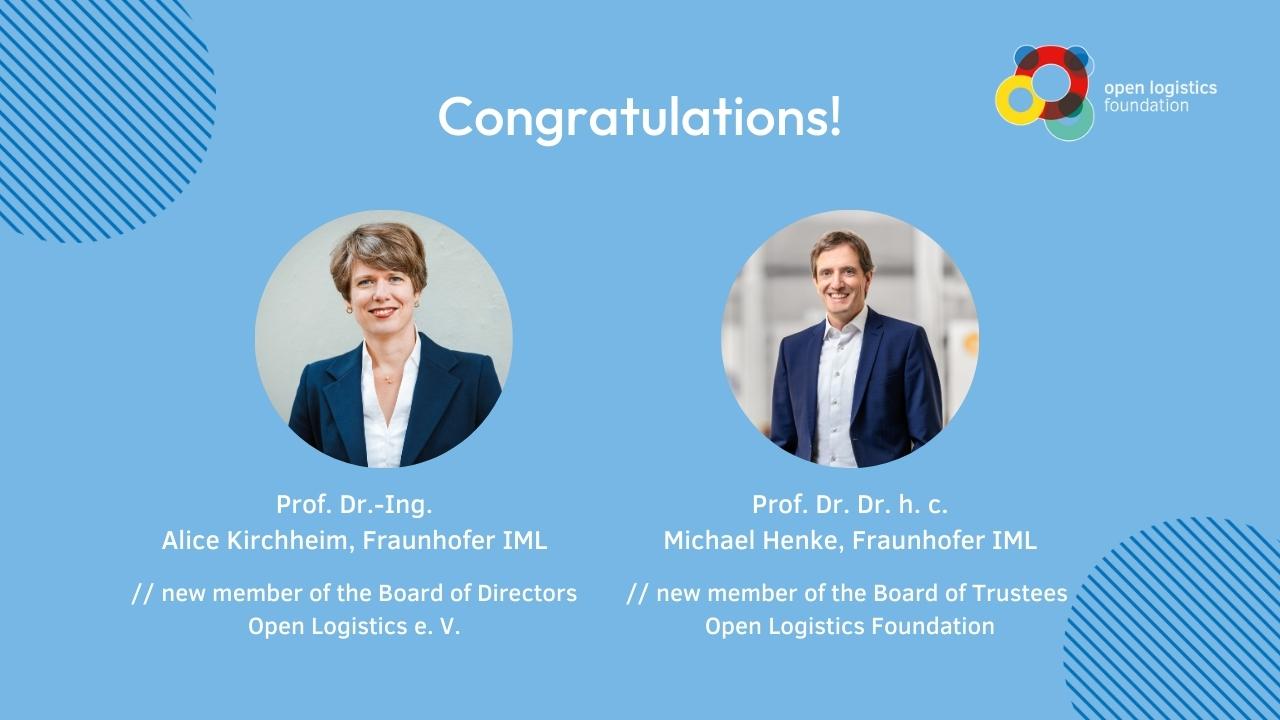Digital Air Cargo
The Working Group Digital Air Cargo and its corresponding project NE:ONE, were established in January 2023.
This Working Group deals with the challenges and opportunities connected to the plane – as one of the modes of transportation of goods. Although the plane is one of the fastest modes of transport, the transit times of goods on the ground are long – especially since the cargo transported by plane is often sensitive or perishable and thus fast-moving or time critical. The pain points thus do not only affect the plane itself, but more so the other members of the supply chain.
The Working Group Digital Air Cargo wants to improve and digitalise the exchange between the different stakeholders at the airport, using an open source approach. Information about the goods should not just be available when the goods are on the ground at their destination, but ideally already when they take off in the country of origin. A basic prerequisite for this, is the change, standardisation, and digitalisation of the data exchange. That’s where the project NE:ONE comes into play.
NE:ONE
The main goal of this project is to develop an open source software package called NE:ONE, which implements the data model and API specifications of the IATA ONE Record standard for air freight. NE:ONE enables the operation of a ONE Record server and therefore participation in data exchange out-of-the-box. Every partner can host a ONE Record server and use it to provide and exchange data via the ONE Record Data Standard with its partners and customers.
Through this the currently used old data formats and resulting poor data quality, if data is being shared at all. Current solutions are only built on these old data formats, as the pressure for innovation of the industry itself is not high enough yet. All of this is not only highly inefficient and error-prone, but also significantly slows down the pace of digitization in air cargo. With the ONE Record standard for data exchange, IATA is now providing an open source solution for a modern data exchange in air cargo.
The project stakeholders set themselves the goals of developing the basic functions and components of the ONE Record API, like logistics object id, data model, error model, basic security & authentication. Furthermore, the development of the advanced functions and components of the ONE Record API like publish & subscribe in multi-link/multi-party scenario, access delegation, access control, versioning. While also having standard server functionalities and components, as well as not reducing the efficiency functions like smart caching, performance monitoring.
While one Working Group deals with means of transportation the other deals with challenges coming into play, when trying to import goods into the country.
Open Customs Blockchain
The Working Group Open Customs Blockchain and its corresponding project BORDER were established February 2023.
The topic of Customs is a highly regulated area, which is shaped by national and EU regulations as well as varying requirements of the respective third countries. Processes with these many stakeholders are often error prone. One of the main problems is that the authenticity of the information exchanged between traders in the data on customs declarations or the integrity of commercial invoices is difficult for the authorities to verify. Therefore, for better integration and interconnection of digital customs procedures, trust in the data provided needs to be strengthened. This is especially true for the information that is often identified as a source of fraudulent behaviour and customs or tax evasion.
Over the years numerous initiatives tried to implement the use of blockchain technology – mostly with a regional focus or limited to very specific functions.
To address these problems the Working Group strives for solutions that can be widely implemented. The solutions that are currently in discussion all build up on the same key element, which is open source. This is because previous systems are proprietary, commercially oriented, and expensive. Moreover, they often require complex data sets and are not based on global standards. This is where the first project of the Working Group starts its work.
BORDER
Export Accompanying Documents (EAD) are among the most important documents for customs clearance. In practice, despite already existing digital solutions for customs declarations, there are still often media discontinuities. In contrast, continuous digital processing of EADs ensures the reduction of costs, process times, labour hours, paper consumption and CO2 emissions. The use of blockchain technology enables the digital handling of customs-related documents, data and processes including the documentation of status and data changes – trustworthy and tamper-proof for all parties involved. Fundamentals for end-to-end digital processing of the EAD for exports from Germany to a non-EU third country have already been created in the “Blockchain Europe” research project. The BORDER project, short for “Blockchain-based organisation of relevant documents in external trade with regulatory compliance”, in the Open Logistics Foundation builds on this.
The developed software is a digital solution for the paper-based processes of customs clearance in foreign trade. The export accompanying document serves as a prototype for blockchain-based, digital customs clearance. If a shipment is released for export, customs transmit the EAD in digital form to the declarant. It is transferred to the BORDER software system and written on the blockchain. Thus, authorized stakeholders can transparently track the entire export process and the respective status. While at the same time, each stakeholder can only view the information that is relevant to them. Individual details or even insights into export shipments of third parties remain hidden.
Some of the main advantages are the availability of real-time data, the usability is high as it is a standardized data format, thus no media disruptions can occur.
What is the bottom line of these new establishments? The establishment of these two new Working Groups shows once more of diverse the application possibilities for open source are and that the joint development of ideas, is a strong driver of innovation and digitalisation, within the logistic industry and beyond.




